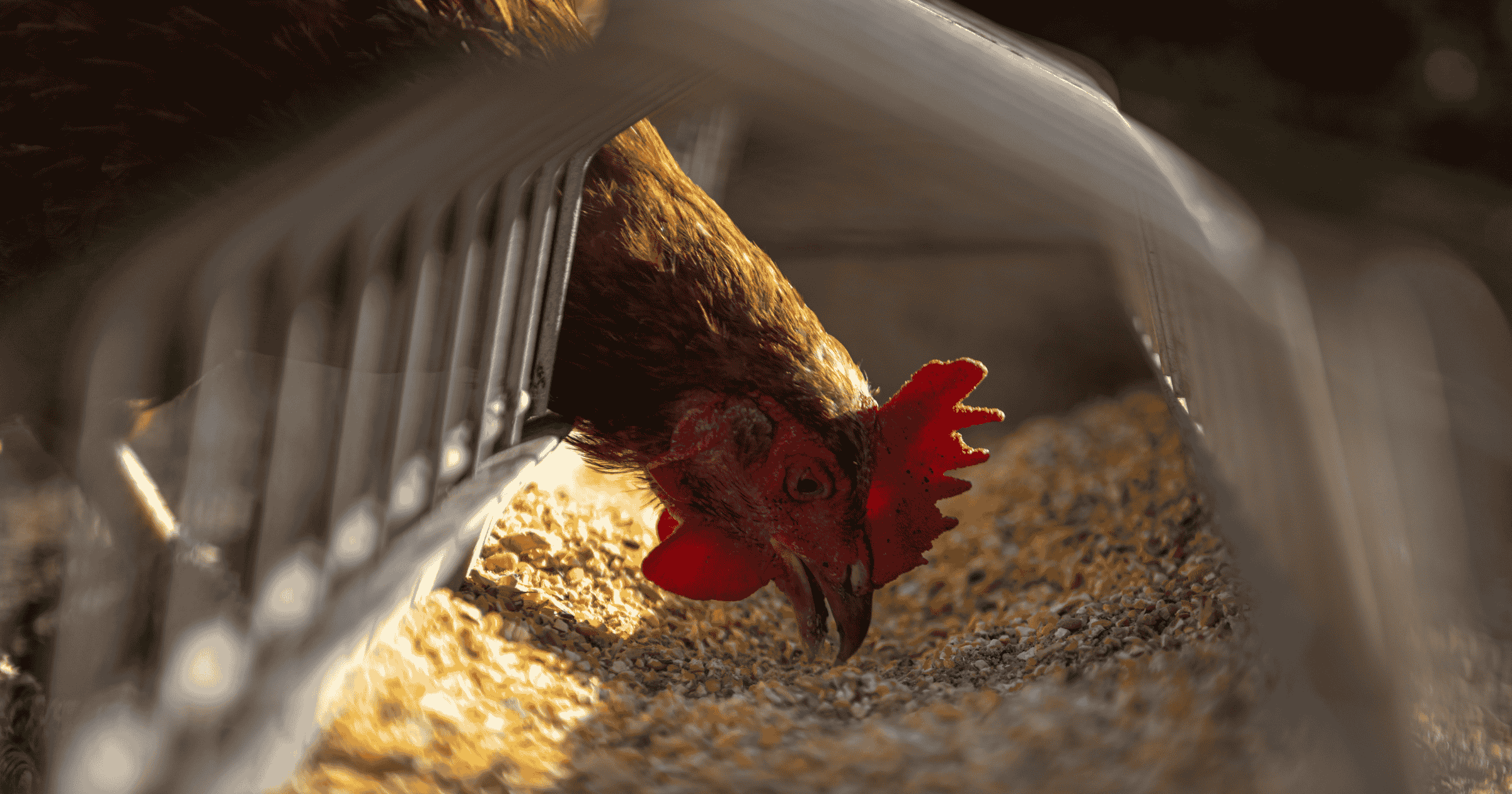
07 Apr Best Diet for Laying Hens in Nigeria – What to Feed Your Birds for Maximum Egg Production
If you’re into poultry farming — whether backyard or commercial — one thing determines your success more than anything else:
👉🏾 What you feed your laying hens.
No matter how good your housing, breed, or farm setup is, if your birds aren’t getting the right nutrition, they’ll lay fewer eggs, smaller eggs, or stop laying completely.
In this guide, we’ll break down the best diet for layers in Nigeria, local feed options, when to feed what, and how to keep your birds healthy and productive all year round.
📍This advice is based on real farm experience here in Lagos, Nigeria, not theory.
Why Diet Matters for Egg Production
Layers are working birds — their bodies go through a lot to produce one egg per day.
Each egg contains:
- Protein
- Calcium
- Vitamins and minerals
- Fat
If they don’t get enough of these in their feed, the bird starts to:
- Lay fewer eggs
- Lay soft-shelled or small eggs
- Fall sick or go into stress mode
So, feeding is not a place to cut corners.
The 3 Phases of Layer Nutrition (and What to Feed in Each Stage)
There are three main feeding phases for laying hens:
| Age | Feed Type | Purpose |
|---|---|---|
| 0–6 weeks | Starter Mash | Rapid growth, immune system development |
| 7–18 weeks | Grower Mash | Bone strength, body mass, pre-laying prep |
| 18 weeks+ | Layer Mash | Egg production, shell strength, sustainability |
Let’s look at each in detail.
🔹 1. Starter Feed (0–6 Weeks)
- High in protein (18–20%)
- Includes vitamins, minerals, and medication to build immunity
- Should be easy to digest for chicks
Brands available in Nigeria:
Topfeeds Starter | Livestock Feeds | Vital Feed Starter
Also provide:
- Clean, warm water
- Chick starter vitamins (e.g. Vitalyte, Aminovit)
- Grit (small stones to help digestion)
📝 Tip: Never feed adult feed to chicks — it can damage their kidneys.
🔹 2. Grower Feed (7–18 Weeks)
This is a transition diet that:
- Helps birds gain proper weight
- Builds reproductive system
- Prepares them for laying
Protein content: 15–17%
Calcium: Still low — to prevent early laying
Available brands in Nigeria:
Topfeeds Grower | Chikun Grower | Amo Byng Grower Mash
Supplement with:
- Crushed maize
- Soya beans or fishmeal (in small amounts)
- Multivitamins every 2–3 weeks
🔹 3. Layer Feed (18 Weeks and Above)
This is where it gets real.
Once your birds start laying, they need a balanced, high-calcium, high-protein diet every day.
Ideal nutrient composition:
- Protein: 16–18%
- Calcium: 3.5–4%
- Energy: 2,700–2,800 kcal/kg
- Fiber: 4–5%
Feed must contain:
- Crude protein sources (soy, fishmeal, groundnut cake)
- Grains (maize, wheat offal)
- Calcium sources (oyster shells, limestone)
- Premix (vitamins and trace minerals)
What to Add to Boost Egg Production (Naturally)
These add-ons and supplements help boost laying:
| Supplement | Purpose |
|---|---|
| Limestone or Oyster Shells | Hardens eggshells |
| Multivitamins (e.g., Vitalyte, Superliv) | Supports immunity and energy |
| Grit | Helps birds digest feed |
| Crushed garlic/ginger in water | Natural antibiotic, improves gut health |
| Molasses or sugar water | Boosts energy, especially in hot weather |
📝 Important: Don’t over-supplement — always follow dosage instructions.
What About Home-Made Feed?
Many farmers in Nigeria mix their own feed to reduce cost — and it can work IF you know what you’re doing.
Here’s a basic DIY Layer Feed Formula (100kg batch):
- Maize – 45kg
- Groundnut cake – 15kg
- Wheat offal – 10kg
- Soya meal – 10kg
- Bone meal – 3kg
- Oyster shell – 6kg
- Fish meal – 3kg
- Premix (vitamins/minerals) – 0.25kg
- Salt – 0.25kg
- Lysine & Methionine – 0.5kg
Pros:
- Cheaper in the long run
- You control what goes in
Cons:
- Requires accurate weighing and mixing
- Any mistake can hurt your birds or reduce production
🔍 If you’re just starting, stick with commercial feed for the first 3–6 months.
Feeding Tips for Better Results
- Feed Twice a Day
- Morning (6–7am) and evening (4–5pm)
- Don’t Overfeed or Underfeed
- 110–120g of feed per bird per day is ideal
- Monitor Egg Output
- If output drops suddenly, check feed quality, stress, or disease
- Provide Clean Water 24/7
- Dehydrated birds = zero egg production
- Don’t Suddenly Change Feed Brands
- Gradually mix old and new over 3–5 days to avoid stress
Common Feeding Mistakes in Nigeria
| Mistake | Effect |
|---|---|
| Using broiler feed for layers | Makes birds fat, not productive |
| Reducing feed to save money | Leads to egg drop |
| Buying low-quality feed from unknown mills | Causes diarrhea, egg deformities |
| Skipping vitamins in hot season | Increases bird stress and mortality |
Where to Buy Good Quality Layer Feed in Lagos
Top feed brands and locations:
- Topfeeds: Alaba, Ikorodu, Oko-Oba
- Chikun Feeds: Ota, Ogun State (delivers to Lagos)
- Livestock Feeds: Ikeja, Ojodu
- Amo Byng: Mushin, Sango, Mile 12
📞 Or you can order directly from our farm if you’re in Lagos — we supply feed, layers, and crates too.
Final Thoughts
The right diet is the foundation of a successful egg farm. Feed quality affects:
- Egg size
- Shell strength
- Egg-laying consistency
- Overall bird health
If you’re serious about egg farming in Nigeria, invest in the right feed at the right time — and your birds will pay you back with crate after crate of quality eggs.
Recent posts
- How to Make Akara and Moi Moi with Farm Eggs | Delicious Nigerian Recipes
- How to Make Perfect Omelettes with Farm Eggs | Easy, Delicious Recipe
- Easy Egg Salad Recipes with Farm Fresh Eggs | Delicious & Nutritious
- Deviled Eggs with Local Nigerian Ingredients | Easy Recipe
- Delicious Nigerian Dishes Made with Eggs | Tasty Egg Recipes
Your cart
Your cart is currently empty!








Sorry, the comment form is closed at this time.